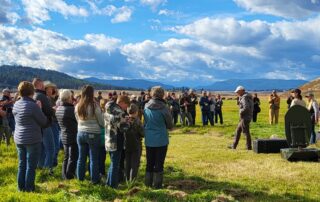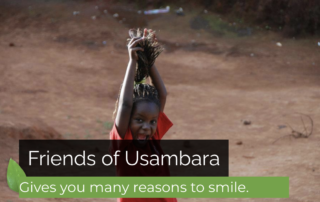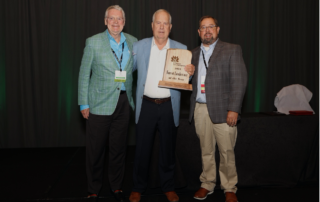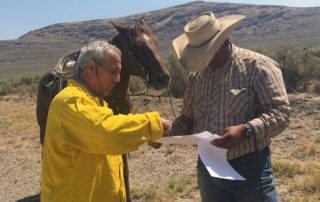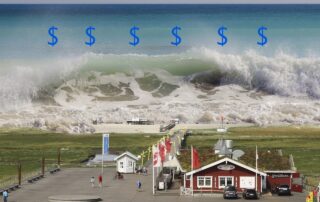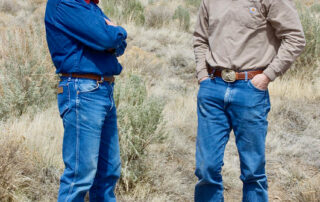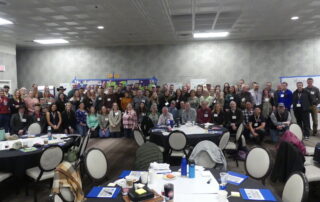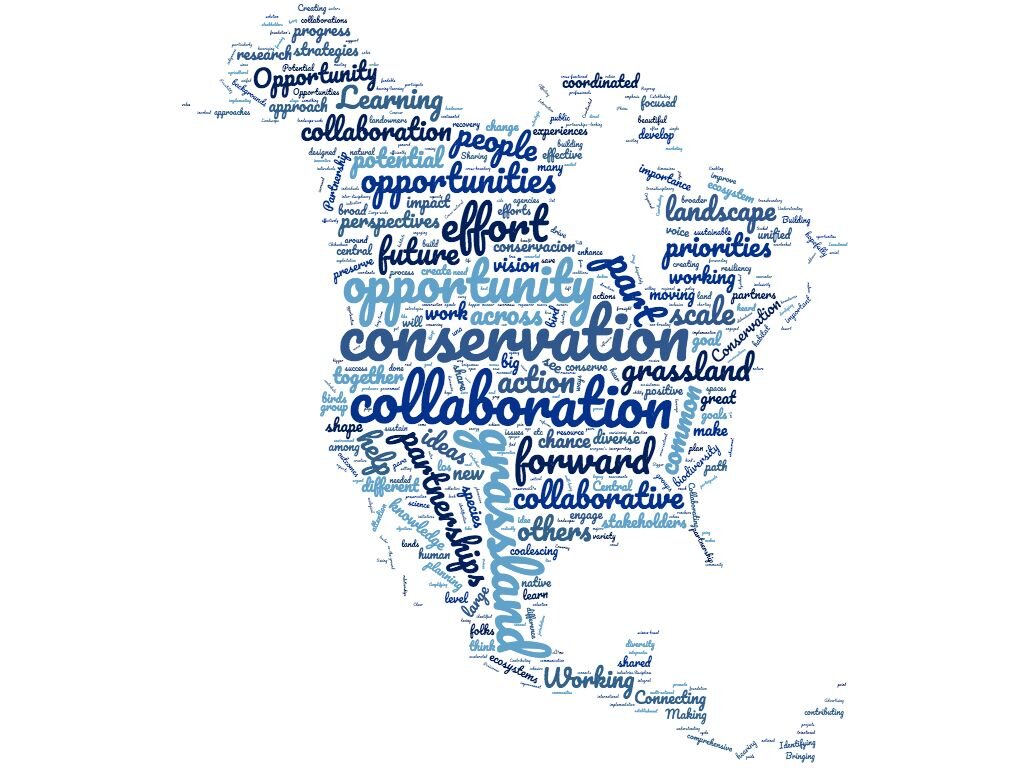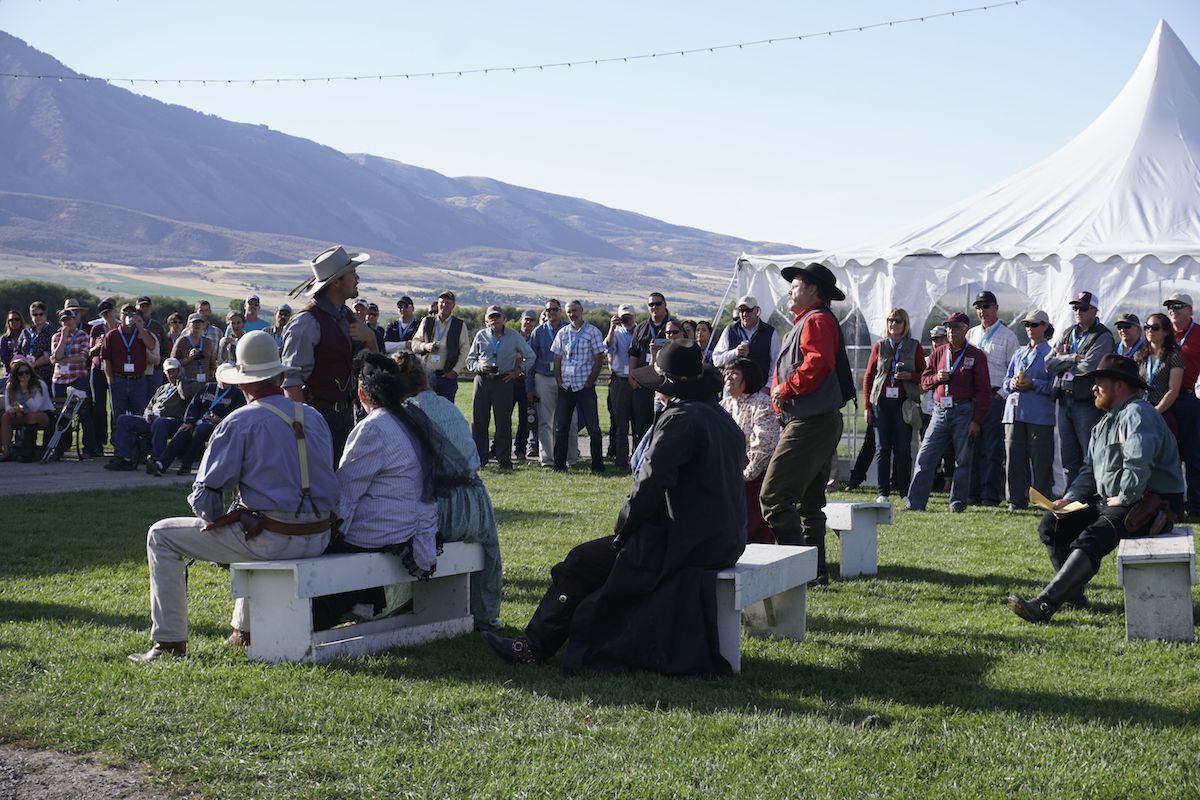Blog
Growing Interest In Supporting Practitioners Delivering Voluntary Conservation
Since its inception, Partnerscapes has worked to support partners that work with private landowners and others in delivering partnership-based voluntary conservation in our national landscapes. The hope has been, as we continue to deliver these events and demonstrate a need and interest in this type of work that others will pick up the torch.
Private Lands Partners Day 2023 – A Homecoming
Last week folks from all over the country gathered in western Montana for the 15th annual Private Lands Partners Day. This year’s meeting returned to the original location and the beginning of Partners for Conservation, which became Partnerscapes. The Blackfoot Watershed, and the highly regarded and accomplished community-based collaborative conservation effort called the Blackfoot Challenge, were the true hosts of the event, even though attendees stayed in Missoula.
An Example of Landscape-Scale Collaborative Conservation Outside the United States – Friends of Usambara
Partnerscapes recently received an email from Nusura Seleman Ramadhan an environmental specialist working with the Friends of Usambara society in Tanzania. The description of the organization and its work on all three “legs of the stool” (the ecologic, economic and sociologic aspects of a place) is very familiar to Partnerscapes and all others involved in collaborative community-based conservation in this country.
Reese Thompson Named Forest Landowner of the Year by Forest Landowner Association
Former Partnerscapes Board Director and Georgia tree farmer, Reese Thompson, was recognized by Forest Landowners Association as their Landowner of the Year at their National Conference of Private Forest Landowners held recently in Nashville, Tennessee!
The Challenges of Implementing Historic Conservation Funding on Private Land
Conservation dollars are here. Now the challenge is developing rules, developing relationships and partners, and getting work down on the ground with some pretty aggressive timelines for implementation.
The Natural Resource Funding Tsunami is Hitting Shore, Now What?
The federal funding environment for natural resource management has changed drastically over the last several years reaching a level that has been described as “generational."
Administration’s Fiscal Year 2024 Budget for Partners for Fish and Wildlife Program Released
The Administration has released its proposed Federal budget for Fiscal Year 2024. The budget includes $80 million for the Partners for Fish and Wildlife Program a 33% increase over the budget enacted for the current year.
Getting Work Done at the Western Lands Partnership Forum in Nevada
A group of 80 plus landowners and collaborative partners gathered for the Western Lands Partnership Forum in early January in Las Vegas, Nevada. Partnerscapes and staff from the U.S. Fish and Wildlife Service’s Partners for Fish and Wildlife program worked together to plan and deliver a unique forum.
Conservation Partnerships, Cooperation, and Collaboration Key for 2023
Federal funding for conservation, specifically under the headings of ecosystem restoration and climate, has truly reached “once-in-a-lifetime” levels with passage of huge pieces of funding legislation such as the Bipartisan Infrastructure Law (BIL) and the Inflation Reduction Act (IRA) in the 117th Congress.
Arkansas Recognizes Private Landowners’ Contributions to Wildlife Conservation
Partnerships with private landowners are the bedrock of natural resource and wildlife conservation in the United States. Learn about the great partnerships that are happening in Arkansas.
Central Grasslands Roadmap
The Central Grasslands Roadmap is a collaborative effort to increase conservation of North America's Central Grasslands, which span more than 600 million acres across Canada, the United States and Mexico.
The Importance of Listening and Trust in Conservation Partnerships
If you think about it, our North American model of wildlife conservation is by definition a diverse-perspective partnership where wildlife are recognized as a public trust resource, owned by both nobody and everybody and managed by public agencies for the public good. In the United States, wildlife conservation has been a partnership since our founding! But how do we know if we have trust or how do we begin to build trust?



